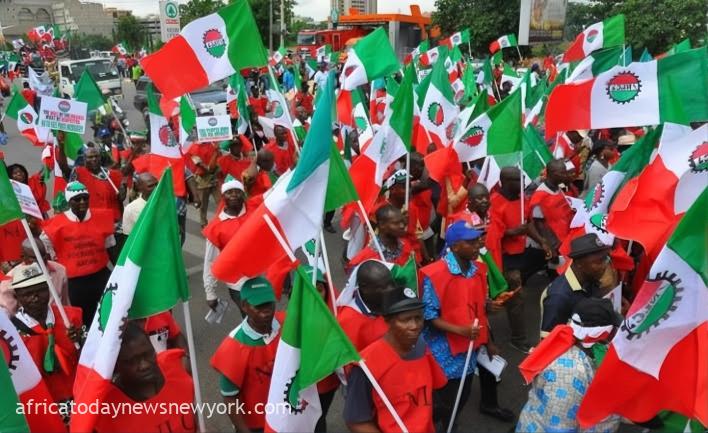Against the backdrop of the inauguration of a Committee that will negotiate the new national minimum wage, the organized labour has proposed a Living Wage of $300 for Nigerian Workers.
It postulated that the current minimum wage which is N30,000 has since been eroded by the high exchange rate coupled with the abrupt removal of fuel subsidy which has translated into the high cost of living in the Country.
Chairman, Trade Union Side, Joint Meeting of the National Public Service Negotiating Council (JNPSNC), Comrade Benjamin Anthony, presented the position of organized labour at the 2023 meetings of the Separate and Joint National Public Service Negotiating Council held at Goshen City, Nasarawa state yesterday.
Anthony who was represented by the Secretary of the union, Comrade Boma Mohammed also frowned at the recent delays in payment of salaries by the Federal Government to workers, saying the trend must be stopped and avert the repeat of such as the suffering in the land is already unbearable.
He said: “As earlier stated, the time to review our Minimum Wage has come, in doing this; we must all agree that the current Minimum Wage of N30,000 has since been eroded by the high exchange rate coupled with the abrupt removal of fuel subsidy which has translated into high cost of living in the Country.
Read Also: Labour Unions Fume As FG Stops Payment Of ₦35,000 Award
“There is no gainsaying that the cost of a bag of rice is far more than the so-called Minimum Wage, and to worsen the situation, the Government is not prompt in the payment of the collectively and freely agreed N35,000 Wage award.
“In light of the above, Labour has proposed a Living Wage of $300 for Nigerian Workers. This is due to the fall in the value of our currency, today if you carry N100,000 to the market you will come back with a leather bag of items.
“We call on Government to immediately pay the arrears of the N35,000 wage award along with the current and expedited action on the process of getting a new living wage to bring succour to the working class people.
Speaking on the Integrated Personnel Payroll and Information System (IPPIS), Anthony lamented that it was quite worrisome that third-party deductions such as, cooperative, and union dues among others are not being remitted to the beneficiaries as and when due, maintaining that this has stifled the operations of these bodies to the extent that some of them could not pay staff salaries, Pension and Insurance Scheme.
This, according to him, has also brought untold hardship to the lives of their staff, calling on Government to direct the immediate release and payment of these funds to the beneficiaries to alleviate the suffering of these sections of workers.
Head of Civil Service of the Federation, Dr Folasade Yemi-Esan, the convener of the meeting urged leaders of the organised labour to tow the path of dialogue in their engagements with Government, in order to achieve peace and stability towards enhanced productivity in implementing Government policies.
She said she was delighted that organized labour unions and Government have had meaningful engagements and constant dialogue, which resulted in the harmonious relationship for improved productivity in the Service.
Yemi-Esan who was represented at the event by the Director Overseeing the office of the Permanent Secretary, Service Welfare (SWO) in the OHCSF, Dr. Kemi Adeosun, said she believed that the positive impact of the meeting and subsequent ones would serve to maintain a stable and goal-driven Public Service in the country.
She noted that the theme for this year Council, Meetings is “Digitalization as an effective and efficient tool for Service delivery in the Public Service”, saying this was aimed at improving performance in the workplace through effective and efficient service delivery in the Public Service.
Chairman of Council and Permanent Secretary, Service Welfare Office, Mr. Mahmud Adam Kambari, explained that the National Public Service Negotiating Council was a collective bargaining instrument for consultation between the Government and the organized labour to address the workers’ conditions of service and their welfare in the Public Service.
He noted over the years, the meeting has consistently remained veritable machinery for bridging communication gaps between Government and the organized labour.

